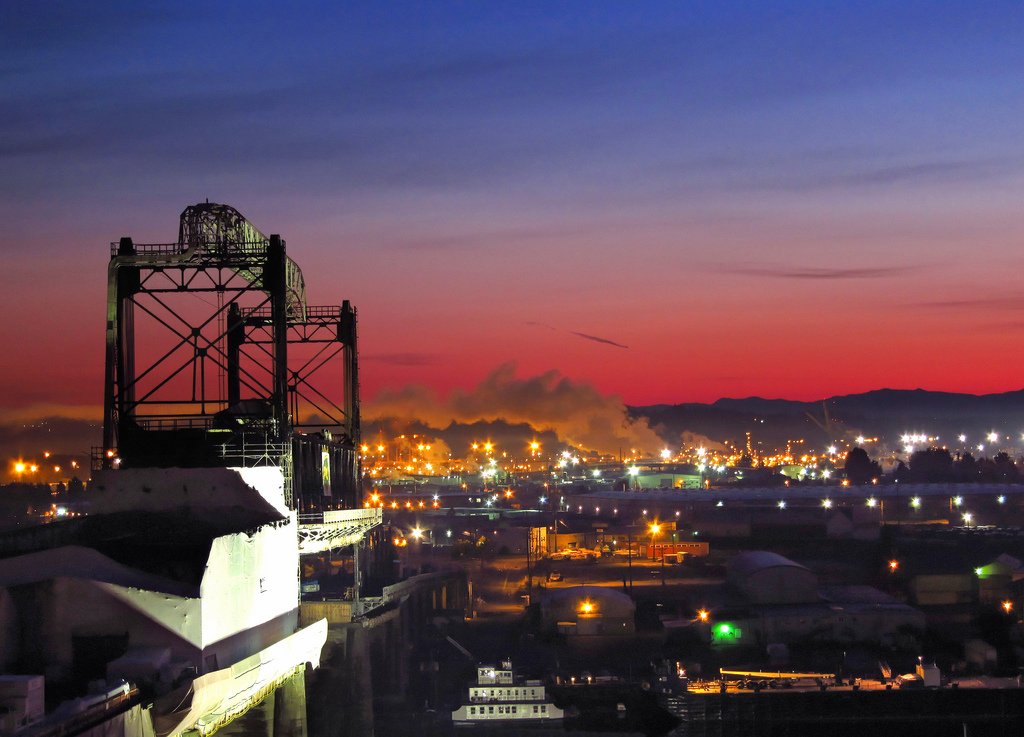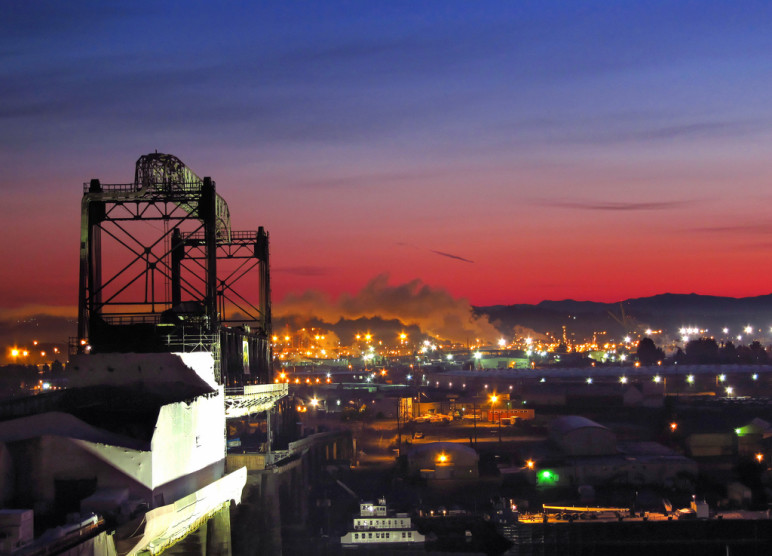Tacoma will get another six-month reprieve from any new fossil fuel facilities, thanks to a Tuesday vote by the city council. The council first approved interim regulations barring fossil fuel development about a year ago to give planners time to write new, permanent land-use laws to govern the city’s industrial port area, known as the Tideflats.
What’s happening in Tacoma is the story of local communities finding common ground in protecting themselves from the risks of dirty energy development.
Long a target for dirty energy facilities, a new set of rules called a subarea plan will result in a comprehensive rewrite of the land-use laws that govern development in the Tideflats. The planning process, which could take up to three years to complete, will include both the Port of Tacoma and the Puyallup Tribe as equal partners with the city. It is almost a certainty that there will be tension between the Port, which has historically boosted fossil fuel projects, and the Tribe, which is adamantly opposed to further developments in its historic homeland.
Although the renewal is good news, an amendment banning expansion of existing fossil fuel facilities failed in a 6-3 vote. Several of those facilities already have plans to do so and are in the process of obtaining permits. These include Targa Sound Terminals’ proposal to receive and store “natural gasoline”—a volatile and unstable by-product of fracked gas—and US Oil’s proposal to expand its refinery’s capacity to handle ethanol.
READ MORE: Tacoma City Council at Critical Crossroads for Tideflats Land-Use
Over the last several weeks, the city council heard public comment from hundreds of residents and members of the Protect Tacoma Tideflats Coalition. Many comments focused on the threat that fossil fuels pose to Tacoma’s residents, waterways, and economy—and it is clear that the council emphatically agrees. Going forward, the regulations will stay in force only as long as they are renewed every six months until the city completes the subarea planning process.
What’s happening in Tacoma is the story of local communities finding common ground in protecting themselves from the risks of dirty energy development. The same story has played out in Portland. And it’s the same story as in Aberdeen, Hoquiam, Vancouver, and Whatcom County, Washington. They are writing new land-use laws, often unanimously, rejecting fossil fuels and orienting themselves toward a cleaner, safer, and healthier future.












John Carlton
Thanks for reporting on this but “…and it is clear that the council emphatically agrees.” How did you come to that conclusion? Most said nothing and then voted against banning expansion of existing fossil fuel facilities, despite the public pleading with them to do so; they chose to continue with the status quo. It didn’t seem like emphatic agreement with the public to me.
Cindy Feist
I agree with John Carlton 100%!
Thank you Sightline for all you do.
Kelsey Hamlin
Thanks for reading, Cindy! We couldn’t do it without people like you.